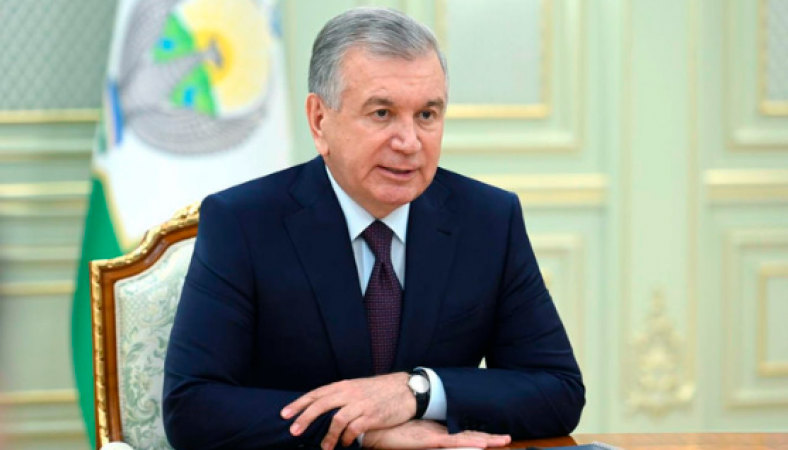
Moscow: Following a constitutional referendum that increased the incumbent's term from five to seven years, Uzbekistan will hold a snap election for president on Sunday.
The maximum number of terms permitted by the constitution, two five-year terms, were won by President Shavkat Mirziyoyev in 2021. However, he was able to start the counting of terms over and seek two more with the amendments approved in the April plebiscite, increasing the likelihood that he would hold office until 2037.
A landslide victory for the 65-year-old Mirziyoyev over his three insignificant opponents is expected.
According to a pre-voting report from the Organisation for Security and Cooperation in Europe's elections observer branch, "the political landscape has not changed, and none of the parliamentary political parties openly oppose the president's policies and agenda."
After taking over as president in 2016 following the death of long-time dictator Islam Karimov, Mirziyoyev has enacted a number of political and economic reforms that have softened some of the harsh measures taken by Karimov, who turned Uzbekistan into one of the most oppressive nations in the region.
Also Read: China's Challenge to Western Dominance Faces Hurdles
In contrast to the complete repression of dissent during the Karimov era, freedom of speech has increased under Mirziyoyev, and some independent news outlets and bloggers have emerged. Additionally, he loosened the strict restrictions on Islam that Karimov imposed in the country, which is predominately Muslim, in order to quell oppositional viewpoints.
Uzbekistan, meanwhile, has maintained a strong authoritarian system with little significant opposition. All officially recognised political parties support Mirziyoyev.
The amendments extending the presidential term were approved by more than 90% of voters in the referendum held in April.
As part of his reforms, Mirziyoyev eliminated state control over cotton production and sales, putting an end to decades of countrywide forced labour in the cotton industries, a significant source of export income. More than 2 million Uzbeks were made to work in the yearly cotton harvest under Karimov.
Additionally, Mirziyoyev removed restrictions on hard currency, promoting foreign investment, and he made efforts to mend strained ties with the West under Karimov. As part of China's Belt and Road Initiative, which has made it Uzbekistan's largest trading partner, he has maintained close ties with Russia and signed a number of significant agreements with China.
Also Read: Justice Srikrishna Raises Alarm Over Data Protection Bill's Govt Exemption, Igniting Privacy Debate
After Moscow sent troops into Ukraine, Mirziyoyev, like the leaders of other former Soviet Central Asian countries with strong economic ties to Moscow, engaged in a delicate balancing act, avoiding endorsing the Russian action but not denouncing it either.